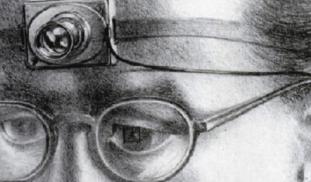Please wait...
About This Project
We humans have always used our surroundings to extend our memory. But is the technology of today enhancing human memory, or replacing it? We plan to gather survey data and run internet-based psychology experiments to find out:
How are people currently using technology for memory purposes?
How well do people understand the technology and their reliance on it?
Are there ways to improve the interplay between technology and human memory?
How are people currently using technology for memory purposes?
How well do people understand the technology and their reliance on it?
Are there ways to improve the interplay between technology and human memory?

Browse Other Projects on Experiment
Related Projects
There's an App for That! Developing an Accessible Cognitive Behavioral Therapy App
In today’s technological society a person’s entire life can be managed on their smartphone, so why not their...
The People vs. Academia: Crowdsourcing the analysis of sleep
Brainwaves during sleep are a window into cognition, early marker of mental disorders, and brain deterioration...
Can brain training help soldiers with brain injury regain hearing?
Hearing loss is one of the top disabilities facing veterans, with over $1 Billion in disability payments...





